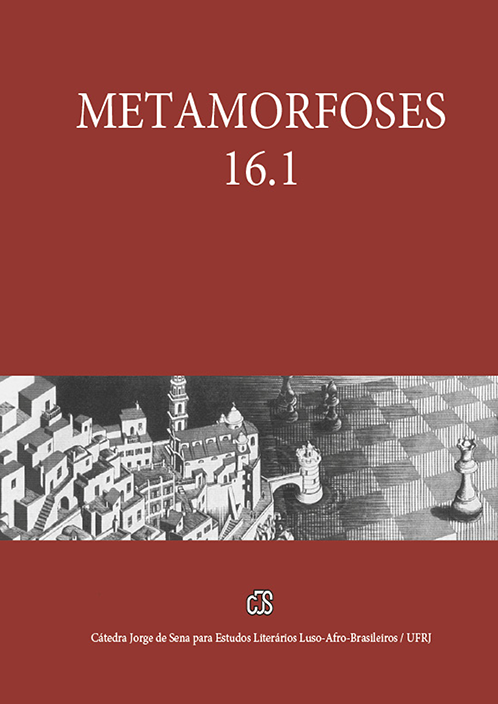The writing of Guimarães Rosa: a commitment of the heart
DOI:
https://doi.org/10.35520/metamorfoses.2019.v16n1a29866Keywords:
Guimarães Rosa, language and narrative structure, Vanguards and Modernism.Abstract
By questioning any sort of literary convention and by introducing a significant number of innovations into Brazilian literature’s language and narrative structure, Guimarães Rosa accomplished in his works a real revolution of the national literary system. This attitude, on the one hand, has brought him closer to the early twentieth century Vanguards and to the first phase of the Brazilian Modernist movement, but, on the other hand, it has led several critics, particularly from Europe and the USA, to see him as a post-modern writer. In any case, however, it indicates a politico-philosophical position that can be represented by the author’s own words who, in an interview by the critic Günter Lorenz, affirmed that “it is only by renewing language that one can renew the world”. In this essay, we will present some of the main innovations introduced by the writer both in language and narrative structure, and will discuss the role they have had in his work as a whole and in the cadre of mid-twentieth century Brazilian literature.
Downloads
Published
Issue
Section
License
Autores que publicam nesta revista concordam com os seguintes termos:
- Autores mantêm os direitos autorais e concedem à revista o direito de primeira publicação, com o trabalho simultaneamente licenciado sob a Licença Creative Commons Attribution que permite o compartilhamento do trabalho com reconhecimento da autoria e publicação inicial nesta revista.
- Autores têm autorização para assumir contratos adicionais separadamente, para distribuição não-exclusiva da versão do trabalho publicada nesta revista (ex.: publicar em repositório institucional ou como capítulo de livro), com reconhecimento de autoria e publicação inicial nesta revista.
- Autores têm permissão e são estimulados a publicar e distribuir seu trabalho online (ex.: em repositórios institucionais ou na sua página pessoal) a qualquer ponto antes ou durante o processo editorial, já que isso pode gerar alterações produtivas, bem como aumentar o impacto e a citação do trabalho publicado (Veja O Efeito do Acesso Livre).

